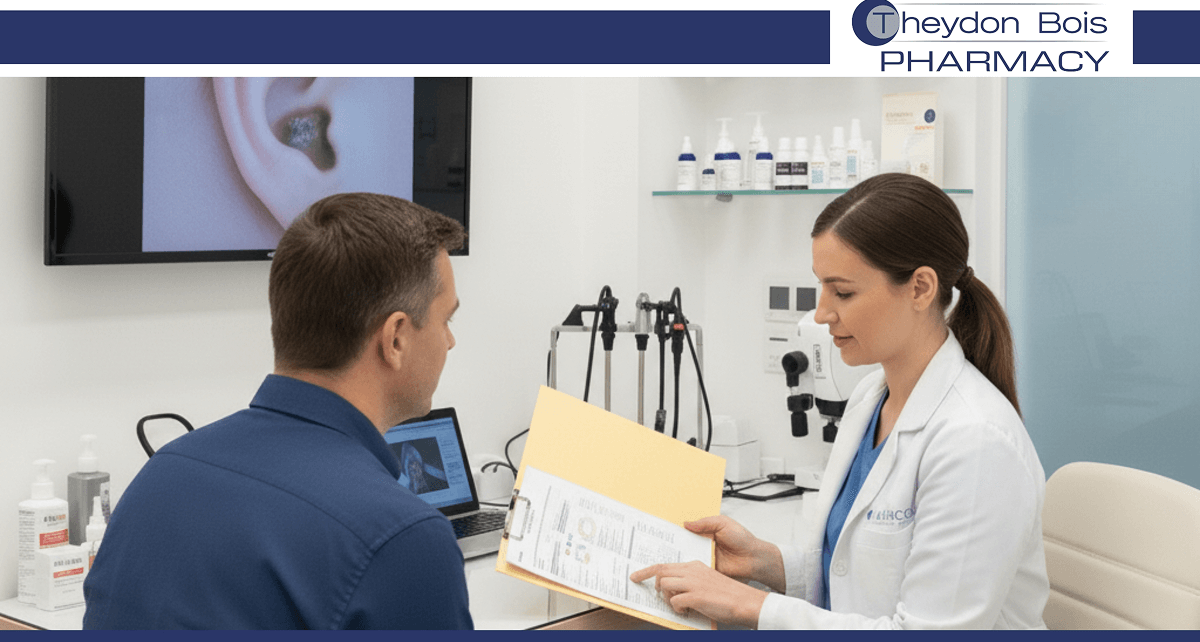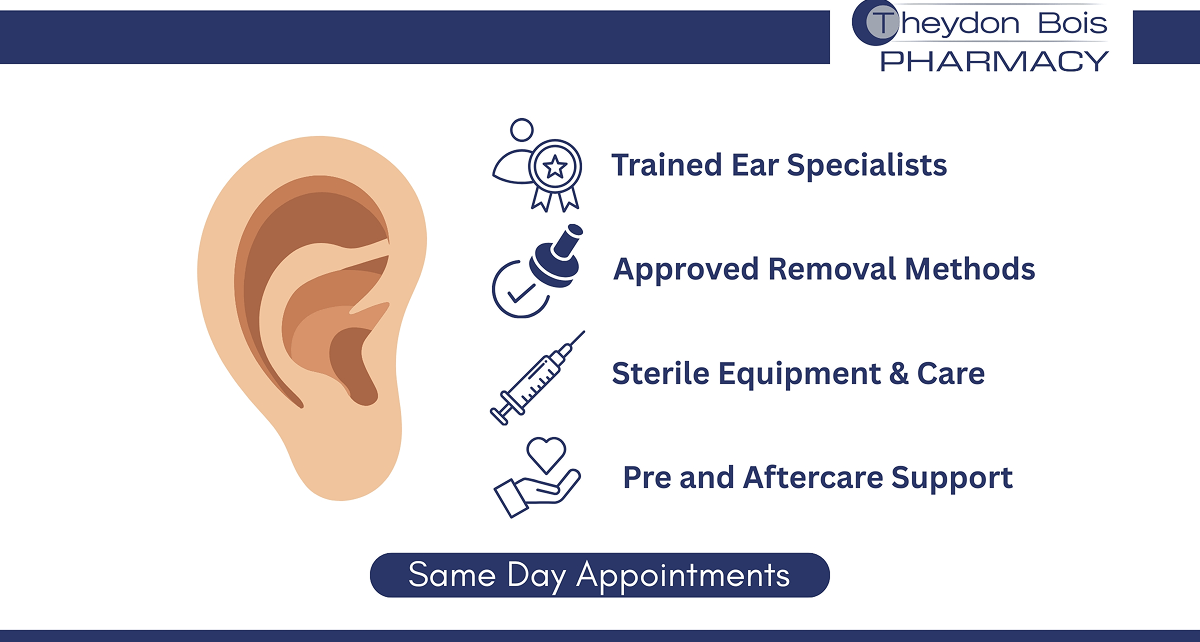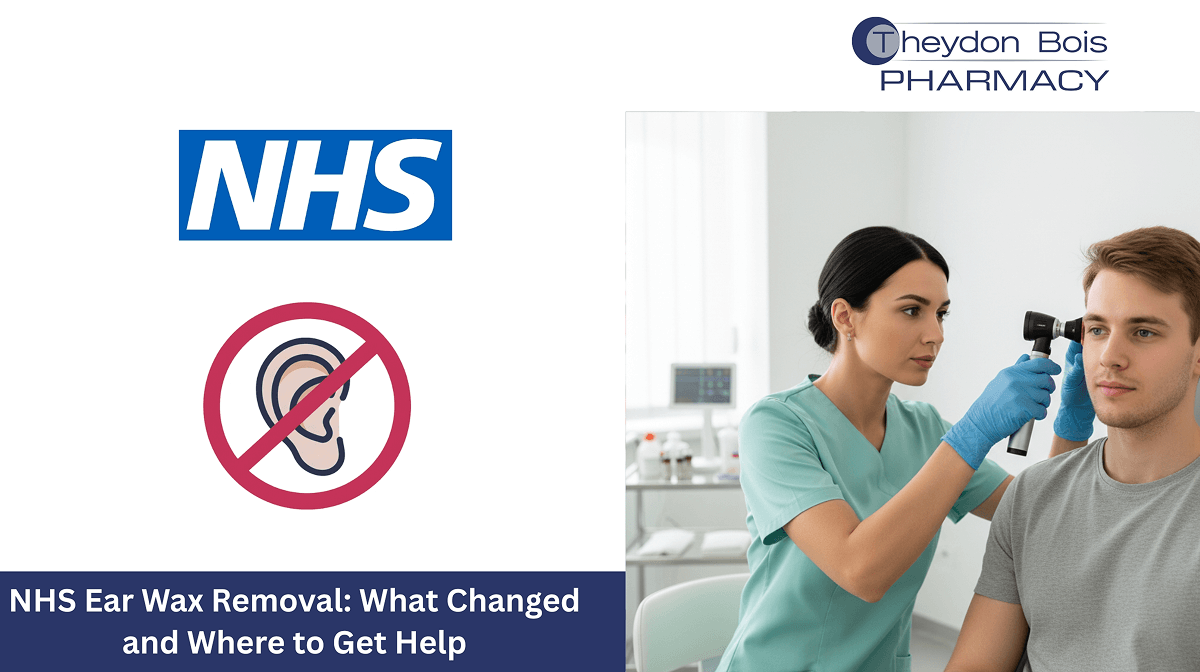Introduction:
A few years ago, most people could simply visit their GP surgery for ear wax removal. It was quick, routine, and part of everyday ear care. However, today, many patients are advised to use drops at home or seek private help.
If you’ve recently been surprised to hear that your GP no longer provides this service, you’re not alone. The change has left many people confused about where to go for safe ear care and unsure why it changed in the first place.
In this guide, ear wax removal Essex specialists explain what led to the shift, how it affects patients, and why community ear clinics and pharmacies are now essential for maintaining ear health in the UK.
What Actually Changed
Ear wax removal is still available from the NHS, but it is no longer routinely offered by every GP surgery. NHS guidance now states that some practices can remove ear wax, some can refer patients elsewhere, and others may advise seeking private care if no local NHS option is available.
The change is due to how the service is funded. Ear wax removal was reclassified as a “locally commissioned service,” meaning each regional NHS board decides whether to fund it. In some areas, it is still available, but in others, patients have no NHS access at all, creating what many now refer to as a postcode gap.
Several NHS regions have publicly explained that the decision was made to prioritise higher-need services. While ear wax build-up is not life-threatening, it can significantly affect hearing, balance, and quality of life, issues that deserve consistent care.
Why GP Surgeries Stepped Back
There are a few key reasons why most GP surgeries no longer offer ear wax removal:
- No longer a routine GP-funded service: Ear wax removal is now considered a non-core NHS activity. Local healthcare boards decide which services to fund, and many have chosen to redirect resources to higher-priority care.
- Updated safety standards: Traditional ear syringing has been replaced by safer methods such as ear microsuction and electronic irrigation, which require specific training and equipment that many GP surgeries no longer have in-house.
- Flexible NHS guidance: Although NICE still recommends wax removal when it affects hearing or prevents proper ear examination, it does not specify that GPs must provide it. This has opened the door for community clinics and pharmacies to deliver the service safely.
How This Affects Patients with Wax Issues
For many people who visit their GP for help with wax build-up, the first advice they receive is to try softening drops such as olive oil or sodium bicarbonate. This approach can work for mild build-ups, but for those with hearing aids, narrow ear canals, or recurring wax problems, professional removal is often still necessary.
With fewer NHS surgeries offering wax removal, many patients now face longer waiting times or must seek private care. Unfortunately, some people turn to unsafe home methods, such as ear candles, cotton swabs, or online ear-cleaning tools, without realizing how harmful they can be. These methods often push wax deeper or injure the delicate ear canal, worsening the blockage instead of resolving it.
The change has been especially difficult for older adults, who are more prone to wax build-up and its side effects. Even temporary hearing loss can increase isolation, confusion, and risk of falls caused by balance disturbances. Parents also face challenges finding safe and timely ear care for children who experience frequent blockages, often feeling uncertain about where to turn for help.
How Private Clinics and Pharmacies Are Filling the Gap

As the NHS has become less accessible for wax removal, community pharmacies and private ear care clinics have stepped in to provide safe and affordable solutions.
Pharmacies and private ear clinics now offer ear microsuction, the same gold-standard method used in ENT departments. Microsuction is water-free, precise, and suitable even for those who have had ear infections or surgery in the past.
Appointments can be booked quickly, without long waiting lists, and are carried out by trained professionals following the same hygiene and clinical safety standards as NHS facilities. For many, it’s a convenient and reliable way to maintain ear health locally.
The Importance of Continuing Ear Health
Just because the NHS no longer routinely provides ear wax removal doesn’t mean it’s less important. Regular ear care prevents infections, supports hearing aid performance, and improves communication and safety in daily life.
Ear wax build-up can also mask underlying problems, such as infections or eardrum issues, that can only be identified through a proper examination. Maintaining ear health helps protect hearing for the long term, something that becomes even more important with age.
How to Choose a Trusted Ear Clinic

When looking for an ear wax removal clinic in Essex, always ensure that:
- The procedure is performed by trained professionals who specialise in ear care.
- The clinic uses approved methods such as microsuction or electronic irrigation.
- Equipment is sterilised, and aftercare advice is provided.
- The team can advise you on ear drop use before your appointment and follow up if needed.
Clinics that meet these standards deliver care that is safe, effective, and tailored to your needs.
Accessible Ear Care with Ear Wax Removal Essex Services
While NHS priorities have shifted, access to ear care has not disappeared, it has simply moved closer to the community. Pharmacies and private ear clinics now play a vital role in helping people maintain healthy, comfortable hearing.
At Theydon Bois Pharmacy in Epping, we’ve taken this responsibility seriously. Our clinicians are trained in approved microsuction techniques and have successfully helped many patients across Loughton, Chigwell, Buckhurst Hill, and Harlow restore their hearing safely.
We believe ear care should remain accessible to everyone, and we’re proud to continue providing it right here in your community.
Book your ear cleaning today at Theydon Bois Pharmacy.
Frequently Asked Questions
1. Why did GP surgeries stop offering ear wax removal on the NHS?
Ear wax removal is no longer classed as a core NHS-funded service. Local health boards now decide which services to support, and many have chosen to focus resources on higher-priority treatments. As a result, most GP surgeries have stepped back, and ear wax removal is now offered through community clinics or pharmacies instead.
2. Can I still get ear wax removal through the NHS?
Yes, but availability depends on your location. Some GP surgeries still provide the service, while others refer patients to hospitals, community ear care clinics, or pharmacies. If your local practice does not offer it, you can check your regional NHS website or contact a nearby pharmacy to find out where ear wax removal is available.
3. Is ear microsuction safer than ear syringing?
Yes. Ear microsuction is now considered the safest and most effective method for removing ear wax. It uses gentle suction without water, reducing the risk of infection or injury to the ear canal. The procedure is quick, comfortable, and suitable for people with hearing aids or a history of ear problems.
4. How can I find a trusted ear wax removal service near me?
Choose a pharmacy or clinic that uses approved techniques such as microsuction or electronic irrigation and is run by trained ear-care professionals. If you live in Essex, Theydon Bois Pharmacy in Epping provides safe and professional ear wax removal service using microsuction, helping patients from Loughton, Chigwell, Buckhurst Hill, and Harlow restore comfortable hearing.
5. Do I need to use ear drops before my ear wax removal appointment?
Yes. Applying olive oil or sodium bicarbonate drops for three to five days before your appointment helps soften the wax, making removal easier and more comfortable. Your pharmacist can advise you on how to use these drops correctly and how long to continue before your visit.

